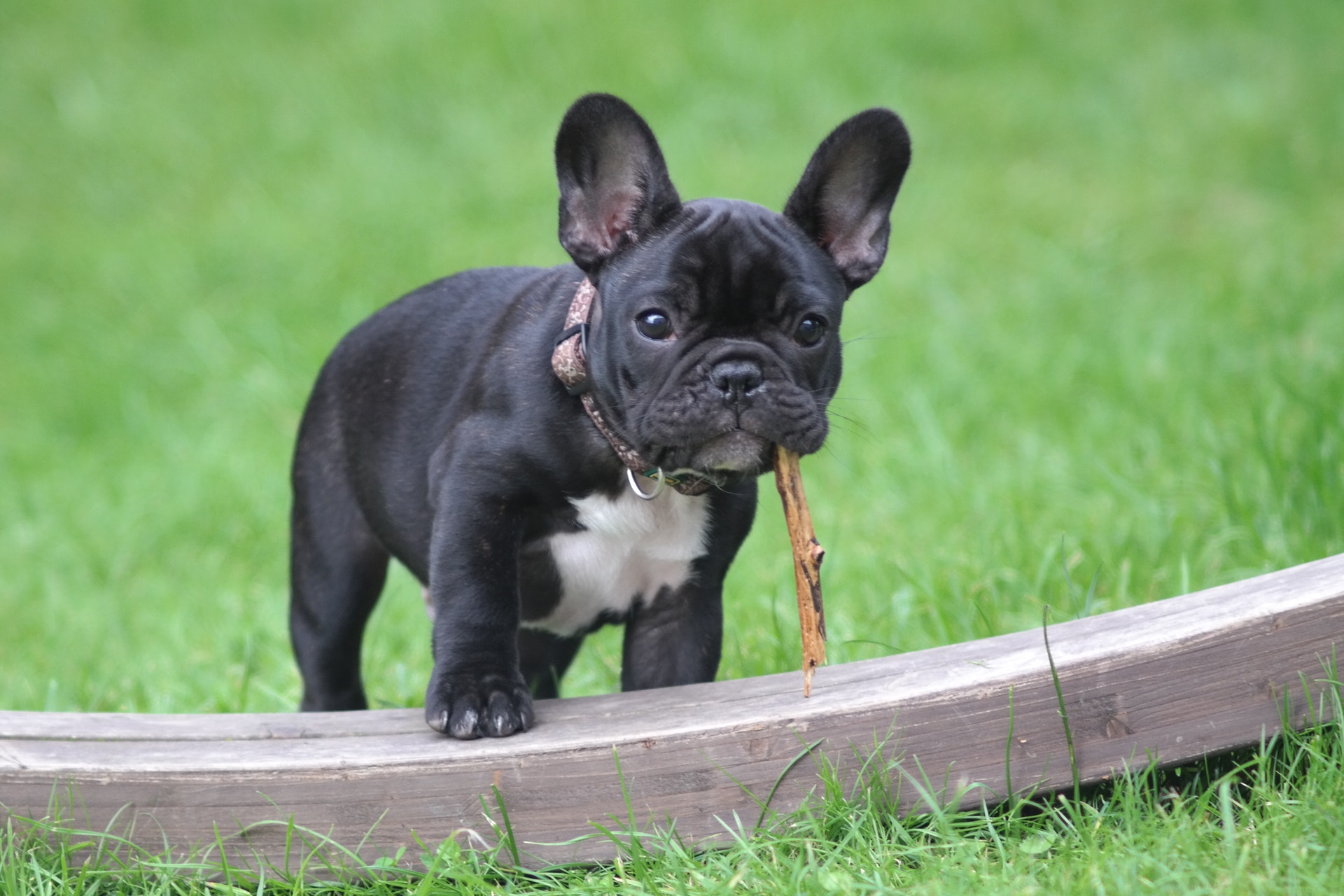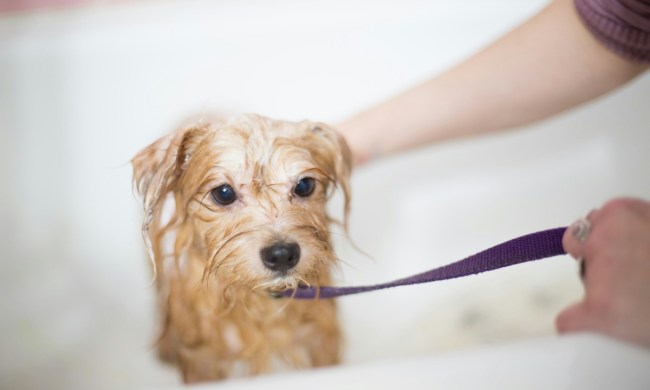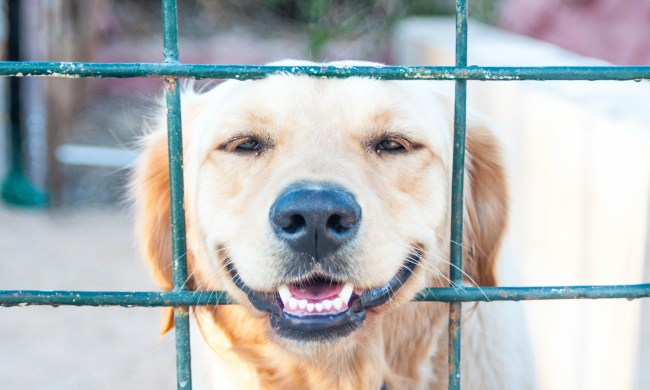Training your dog to stop barking can take time, so you shouldn’t expect a ferocious yapper to stop barking overnight. If you adopted an older dog with a long history of barking, retraining will take longer than you’ll have to spend teaching a puppy not to bark. That being said, encouraging good behavior can go a long way in teaching your dog not to bark at the door.
Remember not to shout at your dog when they’re barking. To your dog, it sounds like you’ve joined in. Make sure you’re consistent while you’re training your dog, which means getting everyone in your household on board with training. You can’t expect your dog to learn what’s appropriate if someone else lets them get away with barking. Be gentle but firm, and you can correct your dog’s behavior.
Here’s how you can do it.

Remove any rewards
According to the Humane Society, dogs get some form of a reward when they bark, or else they would stop doing it. If your dog barks at the door because they hear children outside playing, take your dog to another room and keep them there until they stop barking. Make sure you’re consistent with your training. If they immediately start barking once they’re allowed back in the room, remove them from the room again.
Get them used to the stimulus
Some dogs bark because they’re excited, so one way to teach them to stop is to help them adjust to the stimulus. If your dog barks every time a mail carrier leaves a package on your doorstep, train them out of it by giving them a treat when they stop barking. By rewarding silence, you’ll teach your dog that barking results in not getting a treat, while being quiet means they’ll get one.
Ignore bad behavior
If your dog barks outside your bedroom door at night, they’re most likely doing it because they want attention. Rather than shouting at them to be quiet, which is still a form of acknowledgement, don’t address them at all. Don’t speak to them or open the door while they’re making noise, as they’ll interpret it as a reward. Once they finally settle down, then you can give them a treat to encourage good behavior.
Waiting it out can be tough if you have a particularly willful dog capable of barking for several hours straight, but ignoring your dog teaches them that barking won’t get them anywhere. If you lose your patience after 30 minutes, you’ll teach them that stubbornness — and lots of barking — will always get them the attention they want.
Ask your dog to do something
The Humane Society also advises asking your dog to do something incompatible with barking. When your dog starts to bark, tell them to lie down instead. If your dog does what you’ve told them to do and stops barking, reward them with a treat and lots of praise. You can also combine methods for more effective training. For example, if your dog gets back up and continues to bark, ignore them. Don’t even look in their direction until they stop barking.
Once your dog quiets down again, tell them to sit or lie down, and give them a treat. This teaches your dog that they should lie down and be quiet when they have the urge to bark. It won’t happen overnight, but with patience and perseverance, you can retrain your dog and enjoy a nice, quiet home.
Make sure your dog gets plenty of exercise
Depending on your dog’s breed, they may need long walks or lots of playtime before they tire out, so ensuring your dog gets plenty of physical activity during the day will reduce the risk of boredom-induced yapping. Take your dog for a walk — or let them outside if you have a fenced yard — several times so they can burn off excess energy. If your dog has enough excitement during the day, they may be too tired to bark.
Why does my dog bark for no reason?
Well, there’s always a reason why your dog is barking. It just might not make any sense to you. Dogs bark because they’re bored, anxious, excited, or frustrated. Once you narrow down the cause of your dog’s barking, you can take the appropriate steps to retrain them.
How long can a dog bark nonstop?
The average dog can bark for roughly 60-90 minutes without stopping. Make sure your dog feels safe and secure, as this lowers the chances they’ll bark from anxiety, and ensure they get plenty of exercise during the day so they won’t have the energy to bark simply because they’re bored.

Barking can be a nuisance, but it’s a behavior that can be corrected through training. You can teach your dog not to bark by rewarding them when they’re quiet. Removing them from the situation if they always bark at a certain time of day is a good way to cut down on the noise, but you can also desensitize them to the stimulus causing them to bark. Ensuring your dog gets plenty of exercise will keep them tired and happy, so they won’t have the energy to bark.



